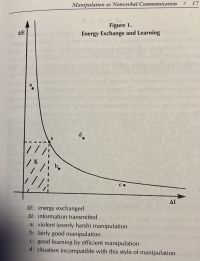Aim for Systematic Explanations (and Distrust Them!)
People that understand
Teaching by Handling
understand how FI works.

Moshe Feldenkrais came from cultural contexts that value literary modes of knowledge-transmission, like Judaism and the Natural Sciences.
As he wrote extensively on his Method, and explicitly endorsed a key contribution of Yochanan Rywerant, MF believed that knowledge can be transmitted through literature. This may seem a trivial point to many, but it's a point that is contested in a number of ways, most often in my experience from people emphasizing their own experiences of learning directly from MF.
The magical qualities of Feldenkrais Method invite many to resort to magical explanations, and so the concrete and grounded structure afforded by MF's writing is far too easily dismissed as peripheral to his off-the-cuff remarks, intended for specific audiences in specific contexts.
When looking at the often-bewildering range of interpretations and elaborations of Feldenkrais Method, the contributions by Yochanan Rywerant stand out as unique syntheses.
In stark contrast to teachers that respond to questions with other questions, or with slick anecdotes, YR tries to develop a coherent explanatory framework that appeals to theory, derived principles, and explicit "Do's and Don'ts" where necessary.
I think it's precisely YR's systematic and coherent explanatory approach that limits his writing's present-day popularity with trainers and trainings. In providing an explicit summary of 'how to teach,'YR maybe alienates those more fully committed to the idea that such an approach is impossible.
By laying a clear foundation to the teaching of Functional Integration, YR interposes between the books contributed by Moshe Feldenkrais and his enormous body of in-person teaching.
And YR advances these contributions with full access to MF for critical feedback.
Moshe Feldenkrais clearly appreciated that values were culturally embedded through childhood learning, and that the self-image was incredibly subjective and variable. His appreciation of the subjectivity of truth, moral, and esthetic values made him postmodern 'before it was cool.'
His education and writing was positioned to provide unique accommodations of the 'social constructiveness of truth' with the objective worldviews developed in the Natural Sciences. In this way, MF was a man of the future: our present-day political cultures are dominated (and paralyzed) by the postmodern program of questioning all truths as mere subjective opinions, but some people like MF can fully live with a post-modern worldview while wielding the systematic approach underlying the Sciences. We need these people now more than ever!
When I was in my Feldenkrais Practitioner training, postmodern thinking was dominant in both the students and teachers.
That Feldenkrais Method comprised a 'system without a system' was definitely the major rubric for gathering the different opinions of our different trainers. At least two of our guest trainers prioritized their personal connection to MF as an explanatory framework over appealing to principles or our prior knowledge.
Although for me, in reading MF's books and then experiencing ATM and FI, the structure and coherence of FM was apparent, so many things were not explicitly obvious to me before reading Yochanan Rywerant's "Teaching By Handling." This book was a salve in that it provided me with a more concrete picture than I had been realizing on my own, complete with worked scenarios I could evaluate for myself.
For example, it was so powerful to see Yochanan Rywerant's cybernetics diagram summarizing information transfer in two discrete stages of FI.(Figure 2)
Such 'exploded black box' explanations are useful because they describe two-way information transfer (which YR infers is central to teaching) without getting hung up in describing neuroanatomy (or something even more phenomenologically distant from teaching, like mechanisms of neuroplasticity).
He does something delightfully clever when synthesizing his "quantum of manipulation" (Figure 1) from the teaching strategies usually motivated by invoking the Weber-Fechner law of perception. It was so brave to see whole FI sequences explicitly notated. So self-contained! Sure some important limitations to the work exist (especially in relation to the phenomenology of pain), and probably there are many specific criticisms that trainers could level, but the book is inspiringly comprehensive yet succinct.
People that really understand this book likely understand how FI works.
As other important contributions like "The Acquiring of the Feldenkrais Profession" fall out of print, while "The Elusive Obvious" gets primped with buzzwords and reprinted, I see our collective priorities in action and I am disheartened. I hope we can agree that a Moshe-Feldenkrais-endorsed training book like "Teaching By Handling" ought to be treasured by the Feldenkrais community. I hope Yochanan Rywerant's writings maintain their broad availability and continue to help Feldenkrais Practitioners to cohere and adhere to our professional standards.
Calgary, Alberta, Canada November 16,
Ryan Hoffman
Ryan has a PhD in Biochemistry,
postdoc in Theoretical Biological Physics
GCFP 2016, Elizabeth Beringer's third San Diego training
Teaching by handling

Figure 1
Teaching by Handling

Figure 2
Teaching by Handling
Two of my texts for further clarification
In his text, Ryan refers to how "Moshe Feldenkrais valued literary modes of knowledge-transmission"
Moshe Feldenkrais often refers to Jewish religious concepts in a secular way. They get lost in translation if the translator doesn't put in the effort. These references were of course self-evident to Yochanan Rywerant and were an integral part of his thinking and teaching.
Yochanan Rywerant believed that the ATM book contained - everything.
It, together with Teaching by handling should be studied as an inseparable whole to understand the Feldenkrais model of thinking.
Of course, YR was familiar with how Coué influenced MF from a young age. His ideas that it is the imagination and not the will that governs, are the seeds of what we today call Feldenkrais.
These two texts complement what Ryan has written.
N’shma v’naaseh
Clarifications of the original text in the ATM book
The image precedes the action
References to the two chapters in Autosuggestion